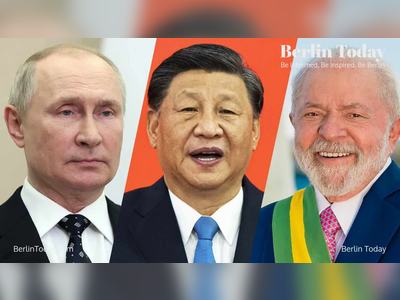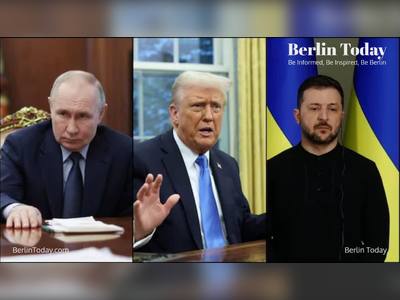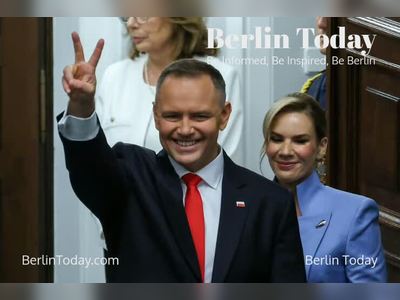Friedrich Merz's Leadership Marks a Shift in German Politics
The new Chancellor's approach differs markedly from that of his predecessor, signaling a potential change in Germany's domestic and foreign policy dynamics.
Following his inauguration on May 6, 2023, Friedrich Merz, the new Chancellor of Germany and leader of the center-right Christian Democratic Union (CDU), has navigated a fast-paced political landscape with a series of decisive statements and actions.
Merz's first visit to U.S. President Donald Trump was characterized by a diplomatic focus, during which he reaffirmed Germany's support for Ukraine amid its ongoing conflict with Russia.
This contrasts sharply with past interactions between Trump and former Chancellor Olaf Scholz and former Chancellor Angela Merkel.
Merz, who has expressed impatience regarding his previous political ambitions, has taken a notably different approach to governance compared to Scholz.
While Scholz, aligned with the center-left Social Democratic Party (SPD), was often perceived to be cautious and secretive in his policy-making, Merz has exhibited a clear articulation of his objectives.
Political analysts have observed that his direct and assertive style marks a significant departure from the methods employed by his predecessor.
In a notable shift, Merz quickly visited Ukraine shortly after taking office, accompanied by notable leaders from France, the UK, and Poland, to express solidarity and discuss peace initiatives.
This immediate diplomatic engagement stands in contrast to Scholz's delayed visit to Ukraine in 2022 and his initially cryptic stance on military aid.
Equally significant is Merz's evolving stance on Israel and the recent conflict in Gaza.
In the past, he openly expressed support for Israel, even inviting Israeli Prime Minister Benjamin Netanyahu during his time as an opposition figure.
However, shortly after assuming the chancellorship, Merz remarked on Israel's military actions in Gaza, signaling a willingness to criticize the Israeli government's conduct.
This type of direct commentary represents a historical shift in German political discourse, as past leaders maintained a more cautious stance on these sensitive issues.
Both Merz and Scholz embody very different political identities.
Scholz’s background includes significant governmental experience as the former Mayor of Hamburg and federal finance minister, where he cultivated a more reserved approach.
Conversely, Merz's ascent to leadership has been characterized by his readiness to address contentious subjects directly, suggesting an intention to redefine Germany's political narrative on several fronts, including international relations and domestic governance.
As Merz embarks on his premiership, his policies and interactions on the global stage will undoubtedly continue to attract scrutiny and discussion, both from within Germany and beyond.
The political ramifications of these actions, particularly regarding relations with allies and approaches to international crises, will unfold in the coming months.
Merz's first visit to U.S. President Donald Trump was characterized by a diplomatic focus, during which he reaffirmed Germany's support for Ukraine amid its ongoing conflict with Russia.
This contrasts sharply with past interactions between Trump and former Chancellor Olaf Scholz and former Chancellor Angela Merkel.
Merz, who has expressed impatience regarding his previous political ambitions, has taken a notably different approach to governance compared to Scholz.
While Scholz, aligned with the center-left Social Democratic Party (SPD), was often perceived to be cautious and secretive in his policy-making, Merz has exhibited a clear articulation of his objectives.
Political analysts have observed that his direct and assertive style marks a significant departure from the methods employed by his predecessor.
In a notable shift, Merz quickly visited Ukraine shortly after taking office, accompanied by notable leaders from France, the UK, and Poland, to express solidarity and discuss peace initiatives.
This immediate diplomatic engagement stands in contrast to Scholz's delayed visit to Ukraine in 2022 and his initially cryptic stance on military aid.
Equally significant is Merz's evolving stance on Israel and the recent conflict in Gaza.
In the past, he openly expressed support for Israel, even inviting Israeli Prime Minister Benjamin Netanyahu during his time as an opposition figure.
However, shortly after assuming the chancellorship, Merz remarked on Israel's military actions in Gaza, signaling a willingness to criticize the Israeli government's conduct.
This type of direct commentary represents a historical shift in German political discourse, as past leaders maintained a more cautious stance on these sensitive issues.
Both Merz and Scholz embody very different political identities.
Scholz’s background includes significant governmental experience as the former Mayor of Hamburg and federal finance minister, where he cultivated a more reserved approach.
Conversely, Merz's ascent to leadership has been characterized by his readiness to address contentious subjects directly, suggesting an intention to redefine Germany's political narrative on several fronts, including international relations and domestic governance.
As Merz embarks on his premiership, his policies and interactions on the global stage will undoubtedly continue to attract scrutiny and discussion, both from within Germany and beyond.
The political ramifications of these actions, particularly regarding relations with allies and approaches to international crises, will unfold in the coming months.
Translation:
Translated by AI
AI Disclaimer: An advanced artificial intelligence (AI) system generated the content of this page on its own. This innovative technology conducts extensive research from a variety of reliable sources, performs rigorous fact-checking and verification, cleans up and balances biased or manipulated content, and presents a minimal factual summary that is just enough yet essential for you to function as an informed and educated citizen. Please keep in mind, however, that this system is an evolving technology, and as a result, the article may contain accidental inaccuracies or errors. We urge you to help us improve our site by reporting any inaccuracies you find using the "Contact Us" link at the bottom of this page. Your helpful feedback helps us improve our system and deliver more precise content. When you find an article of interest here, please look for the full and extensive coverage of this topic in traditional news sources, as they are written by professional journalists that we try to support, not replace. We appreciate your understanding and assistance.











